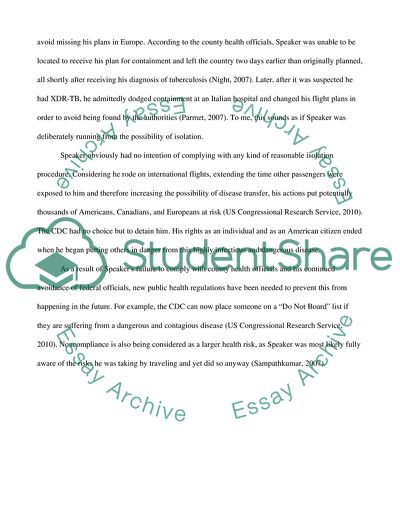Individual Rights and Infectious Disease Medical Ethics Example | Topics and Well Written Essays - 500 words. https://studentshare.org/medical-science/2106637-individual-rights-and-infectious-disease
Individual Rights and Infectious Disease Medical Ethics Example | Topics and Well Written Essays - 500 Words. https://studentshare.org/medical-science/2106637-individual-rights-and-infectious-disease.


